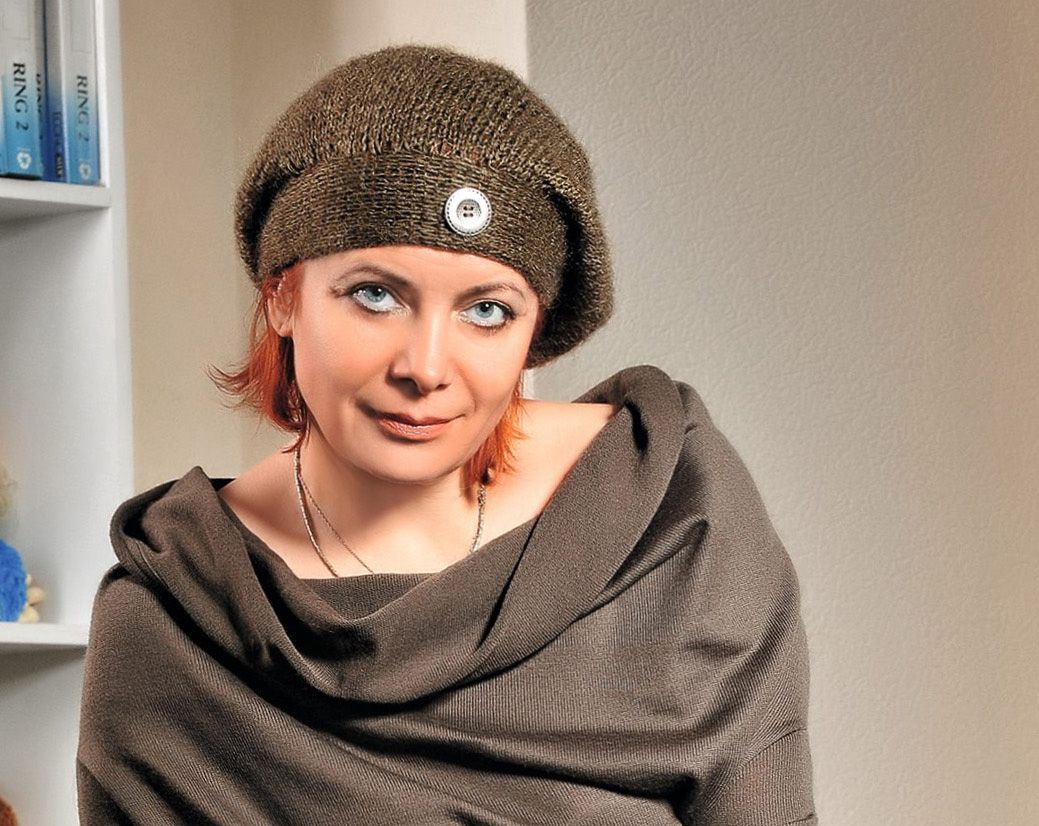About the change of “public faces”
Natalia VLASHCHENKO: “I had a clear feeling that karma had its effect”
For five months, since the end of April, the chief editor of the sociopolitical magazine Public People Natalia Vlashchenko every working day appears on 112 Ukraine live with her author’s program “People. Hard Talk.” Very different people have visited Natalia’s show over this time, from director Davyd Cherkasky, producer and showman Dmytro Chekalkin, literary critic Yurii Volodarsky, director Serhii Proskurnia to former head of Kyiv City Administration Oleksandr Popov, advisor of the Minister of the Internal Affairs Anton Herashchenko, public figure and Merited Doctor of Ukraine Olha Bohomolets, etc. But whereas previously politicians and civil activists came to “People. Hard Talk” together with culture workers, now it has been decided to divide them for different days and formats. Now from Monday to Friday the audience will have an opportunity to enjoy the half-hour talks about “good and eternal,” listen to stories of success, get to know the culture landscape of Ukraine, and on weekends watch programs with newsmakers. “I would like you to pay attention to the fact that the everyday and weekend formats of the program will differ. And we will ‘sting’ in every format whenever we have an opportunity,” Natalia Vlashchenko wrote on her Facebook page. “Stinging” is what the host can do well – owing to her humor, sometimes slight mockery, captious questions, and dynamic discussions even the night shows of “People. Hard Talk” are easy to watch. Natalia Vlashchenko tells The Day about the generation chauvinism, the feeling of karma effect, and what she would ask Mustafa Nayem and Serhii Leshchenko about in her program.
Your program “People. Hard Talk” has changed its format: apart from the shows with public people, often from the sphere of culture, you have started to give political newsmakers every week. How does the communication between these two categories of people differ?
“Simply the program has in a natural way fallen into two parts: strict portraits, when the hero tells about his way to success, he does not always like the questions, and often it is a story about him, peculiarity of his work, relations with people, etc.; and the hot talks with newsmakers about the events of recent days. In this case we have understood that the recording and delay of the show is a minus. Both formats are in a sense varieties of the whole thing. Both of them are interesting for me. Hopefully, the audience finds them interesting as well. Let’s say, a talk near a fireplace with Davyd Cherkasky is one thing, and a sparring with a politician is quite a different thing.”
Recently journalists who go to parliament in party lists have caused a stir in the news. Can we expect them to appear in your program? What question would you ask Mustafa Nayem or Serhii Leshchenko?
“Clearly, after the elections we will have things to discuss, if Serhii and Mustafa agree to talk. My question would be the one that I came up with naturally and which I have already asked on my Facebook page: why the decision to go to parliament was announced after the beginning of the election campaign at the last moment? In this sense they did not differ from the ‘former’ ones. Probably, they have some explanations except for beautiful essays which they have published on social media.”
Lately more and more media experts have been criticizing the talkshows of the central channels, accusing them of populism, chaos, and disorder in the studio, repeating characters on their shows. How do you keep the standards of your talk show?
“Today I have a fantastic situation: according to the agreement, the channel leaves the content and personalities of the guests for my judgment. So, all successes and failures are mine.”
How will you react if you hear that the answers of your interviewee go down to populist mottos?
“In this case I try to stop the interlocutor. Sometimes I do this harshly (smiling).”
How much have the faces of the public people in Ukraine changed? Can you see in the country new elite made up of these public people?
“I told about the quick change of the elites before Maidan-2. I had a clear feeling of karma effect. Networks, meetings, roundtables, columns in good mass media were full of anxiety and desire of changes. Only television did not ‘get it.’ If you switch on some of the channels, you will see that they are still living in 2003.”
People also speak much about the renewal of the elites, disregarding the previous generations. In your opinion, as a many-year editor of the magazine Public People, does the “old guard” include people who can help now in strengthening of Ukraine, and who should not be involved in the new political life of the country?
“In this sense it is important to which extent the person is adequate to present-day reality. In Europe or the States there is no generation chauvinism. Global things are important there: whether you are professional or a dilettante, clever or fool, whether you are interesting for the society, etc. There is no mechanic division into young and old. I have seen 30-year-old people who did not have any future, and I know 50-year-old ones who are fantastically interesting in life and profession. How old are Lina Kostenko, Oleksandr Rodniansky, or Sasha Kabanov?”






